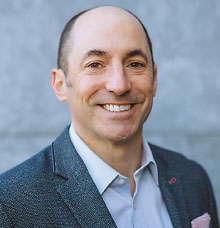Elizabeth Morgan Brown was a top student. She earned a black belt in karate, played piano, and was a violinist in the San Francisco Symphony Youth Orchestra. She was granted early admission to Bard College in Massachusetts, where she made the dean’s list.
When Brown returned home from college in May 2017, she told her parents she needed to see a therapist. Despite being insured by Kaiser Permanente, they were told the first appointment to treat the 17-year-old for severe anxiety and depression wasn’t available until mid-July. That’s when “the battle to provide care for her began,” her parents wrote. They never heard back from the outside contractor to which they had been referred by Kaiser. “We searched for other caregivers in a huge sea of therapists with no coordination from Kaiser.”
By Thanksgiving of that year, Brown was experiencing suicidal ideation, yet her parents said it took a month before she could secure an appointment with a psychiatrist. At age 19, Brown died from her injuries five months after a suicide attempt while waiting for a spot to open in a residential treatment program.
A new California law is aimed at preventing delays in obtaining mental health care appointments: Starting this July 1, SB 221 specifies that state insurers must provide follow-up mental health care within 48 hours of a request for an urgent care appointment and within 10 days of a request for most nonurgent care. Calif. Sen. Scott Wiener, who wrote the law, said in a statement that this law was needed to close a big loophole in an earlier mental health parity law. Under CA 855, many patients with serious mental illness or a substance use disorder were granted a timely initial appointment by their health plan within 10 days but then waited months between follow-up appointments, with sometimes tragic consequences.
“Evidence-based practice and the research behind it indicate that for psychotherapy to have any real meaningful effect and positive outcome, a patient should be seen at an interval no less than once every week or two,” Michael Fitzpatrick, Psy.D., a psychotherapist in private practice who formerly worked for Kaiser Permanente and served at the National Union of Healthcare Workers (NUHC), told Psychiatric News. “At Kaiser, most patients wait anywhere from one to two months between psychotherapy appointments, and in Southern California, they often wait three months. That means every time we meet with a patient, we have to restart the therapeutic relationship. That’s why we took the lead in advocating for this bill.”
According to a report by the Legal Action Center (LAC), California’s law is the latest in a growing trend. Six other states now require health plans to provide appointments for people with a mental or substance use disorder (MH/SUD) within set timeframes of the request for care: Colorado, Maine, Maryland, Missouri, New Hampshire, and Texas. Another statutory trend is requiring plans to adequately staff their MH/SUD networks by setting minimum provider-enrollee ratios and maximum travel time and distance standards for enrollees to reach providers.
“These laws are absolutely essential,” explained Ellen Weber, LAC’s senior vice president of health initiatives and author of several reports on mental health parity enforcement. “Without them, there’s no way to track and measure what health plans are doing. These laws establish the quantitative metrics that health plans must meet.”
The vast majority of mental health therapists (87%) at Kaiser Permanente in California reported that weekly appointments were not available to patients who needed them, according to a
survey by the NUHC. California is not unusual: One widely quoted pre-pandemic study found that wait times from referral to first appointment averaged 48 days nationally at community-based behavioral health clinics.
Once SB 221 takes effect, all health plans in California must provide nonurgent follow-up with psychiatrists within 15 days. The wait time for follow-up may be extended if the provider determines that it will not have a detrimental impact on the enrollee. The law also puts health carriers on the hook for covering out-of-network care for members who can’t obtain it within reasonable geographic and timely standards.
“That’s a really big thing because we know that patients receiving outpatient mental health care are five to six times more likely to pay out-of-network rates than those being treated for medical illnesses,” Benjamin F. Miller, Psy.D., president of Well Being Trust, a nonprofit working to advance mental, social, and spiritual health, told Psychiatric News. “This law puts a little bit of pressure on health plans to build out their networks by increasing reimbursement and by being more creative about recruitment.”
Maryland’s law, adopted in 2017, has had a rocky start. According to a report by LAC, only one carrier provided complete compliance information in 2019, and no carrier met all three metrics (travel distance, appointment wait time, and provider-enrollee ratios). Only two of the 16 insurance carriers that year met the law’s new standard for providing urgent medical or MH/SUD services within 72 hours. Fewer than half (seven of 16) of the state’s carriers met the 10-day appointment wait time standard for nonurgent care.
In response, LAC is now urging the Maryland Insurance Administration to impose substantial penalties on carriers that violate standards or file incomplete reports. LAC is also urging the use of standardized report forms.
Weber discounted the argument that the lack of clinicians is the fundamental problem in the mental health system; instead, she said, strong enforcement of existing parity laws is needed. “The mere fact that people are getting their MH/SUD services out of network demonstrates the fact that there are providers available to deliver those services. They’re just not in plans’ networks. We need to look at why.”
Weber said MH/SUD clinicians don’t join insurance carriers’ networks because plans pay them far less, make it far more onerous for them to join, and require untenably rigorous utilization management practices compared with their medical/surgical counterparts. “These carriers aren’t complying with the Mental Health Parity and Addiction Equity Act [MHPAEA] that took effect in 2009, and they can be penalized under that law,” Weber said.
The federal government is also beginning to establish stricter standards around the ways that carriers try to limit coverage for MH/SUD benefits. Three agencies that enforce MHPAEA issued
a report in January noting that every comparative analysis that carriers submitted for review was insufficient. The agencies wrote they plan to recommend statutory changes to improve compliance, including imposing civil monetary penalties on carriers. The report was issued as a direct result of the parity law for which APA had successfully advocated as part of the 2022 Consolidated Appropriations Act.
“Plan members are paying a monthly premium for their insurance that includes MH/SUD benefits, so they should be receiving those services in network,” Weber said. “When they are forced to go out of network, they’re paying twice. It makes receiving MH/SUD care unaffordable for many people.” ■
Wiener’s statement on SB 221 is posted
here.
“The Spotlight on Network Adequacy Standards for Substance Use Disorder and Mental Health Services” is posted
here.


